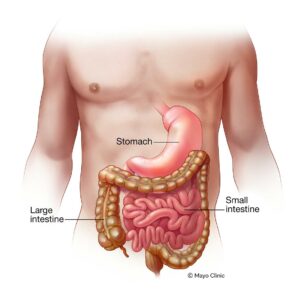Pain in lower belly can be caused by various factors, such as gastrointestinal issues or reproductive problems. This discomfort in the lower abdominal region can range from mild to severe and may be accompanied by other symptoms like bloating or cramping.
It is important to consult a healthcare professional to determine the underlying cause of the pain and receive appropriate treatment. Ignoring or self-diagnosing the pain can lead to further complications. By seeking medical advice, you can address the issue effectively and improve your overall well-being.
Table of Contents
Understanding The Causes Of Lower Belly Pain
Lower belly pain can be caused by a variety of factors, including muscular strain, digestive disorders, and gynecological conditions. One common cause is muscular strain, which can occur from activities such as heavy lifting or overexertion. Digestive disorders, such as irritable bowel syndrome or constipation, can also contribute to lower belly pain. Gynecological conditions, such as ovarian cysts or endometriosis, may manifest as lower belly pain as well.
It is important to seek medical attention if you experience persistent or severe lower belly pain, as it may be a sign of an underlying issue. Your doctor can help determine the cause of your pain and recommend appropriate treatment options. Remember to listen to your body and prioritize self-care to prevent and manage lower belly pain.
Identifying Common Symptoms Of Lower Belly Pain
Pain in the lower belly can be a cause of concern, but understanding the associated symptoms can help identify the underlying cause. Cramping is a common symptom experienced by many individuals with lower belly pain. It is characterized by a sharp or dull ache that comes and goes. The sensation is often described as similar to menstrual cramps.
Bloating is another symptom that often accompanies lower belly pain. It refers to the feeling of fullness or tightness in the abdomen, caused by excess gas or fluid accumulation. Individuals may also experience distension of the belly.
Nausea is a common symptom associated with lower belly pain and can range from mild queasiness to severe vomiting. It may be caused by various factors such as indigestion, food poisoning, or gastrointestinal issues.
Recognizing these symptoms can aid in determining the cause of lower belly pain. It is crucial to consult a healthcare professional for a proper diagnosis and appropriate treatment.
Effective Home Remedies For Lower Belly Pain
Lower belly pain can be uncomfortable and disruptive to daily life. Thankfully, there are several effective home remedies that can provide relief.
Applying heat or cold compresses to the lower belly area can help reduce pain and inflammation. You can use a heating pad or a hot water bottle for heat therapy, or an ice pack wrapped in a thin cloth for cold therapy.
Another remedy is to try gentle exercises that can help alleviate lower belly pain. Activities like walking, stretching, and yoga can promote blood flow, reduce tightness in the muscles, and provide relief.
Incorporating anti-inflammatory foods into your diet can also help ease lower belly pain. Include foods rich in omega-3 fatty acids, such as salmon and walnuts, as well as fruits and vegetables with high antioxidant content, like blueberries and spinach.
By utilizing these home remedies, you can find relief from the discomfort of lower belly pain and get back to enjoying your daily activities.
Over-the-counter Medications For Lower Belly Pain Relief
Over-the-counter medications are effective in providing relief from lower belly pain. Non-steroidal anti-inflammatory drugs (NSAIDs) are commonly used to alleviate pain caused by inflammation. These medications, such as ibuprofen and naproxen, can reduce swelling and relieve discomfort.
Antacids are another option for individuals experiencing lower belly pain. These medications work by neutralizing stomach acid, which can alleviate symptoms such as heartburn and indigestion. Antacids are available in tablet or liquid form and provide quick relief.
Probiotics, on the other hand, can help regulate gut health and improve digestion. These supplements contain beneficial bacteria that support a healthy digestive system. By restoring the natural balance of gut flora, probiotics can reduce lower belly pain caused by digestive issues.
Seeking Medical Help For Lower Belly Pain
Lower belly pain can be a cause of concern and may warrant medical attention. If you experience persistent or severe pain in your lower abdomen, it is important to consult a healthcare professional. Symptoms such as sudden, sharp pain, pain accompanied by vomiting or fever, or pain that worsens over time should not be ignored. These could indicate a serious underlying condition that requires immediate medical intervention.
To determine the cause of your lower belly pain, your healthcare provider may recommend specific diagnostic tests and procedures. These can include physical exams, blood tests, imaging tests such as ultrasounds or CT scans, or even performing a laparoscopy for a more detailed examination of the abdominal area.
The treatment for lower belly pain depends on the underlying cause. Your healthcare professional will evaluate your symptoms and conduct any necessary tests to make an accurate diagnosis. Treatment options can range from medication and lifestyle changes to surgical interventions, depending on the specific condition causing the pain.
Preventive Measures For Lower Belly Pain
Maintaining a healthy diet and weight: Eating a balanced diet consisting of fruits, vegetables, whole grains, and lean proteins can help prevent lower belly pain. Avoiding processed foods, sugary drinks, and excessive alcohol consumption is crucial for maintaining a healthy weight and reducing the risk of pain in the lower belly.
Practicing stress management techniques: Excessive stress can lead to digestive issues and lower belly pain. Incorporating stress management techniques such as deep breathing exercises, meditation, yoga, or engaging in activities that help relax the mind can alleviate stress and minimize the chances of experiencing discomfort in the lower belly.
Regular exercise: Engaging in regular physical activity not only helps in maintaining a healthy weight but also improves digestion and reduces the risk of lower belly pain. Exercise stimulates the digestive system and promotes proper bowel movements, preventing issues like constipation or bloating which can contribute to pain in the lower belly.

Credit: www.everydayhealth.com
Frequently Asked Questions On Pain In Lower Belly
Why Do I Experience Pain In My Lower Belly?
Pain in the lower belly can be caused by a variety of factors, including menstrual cramps, urinary tract infections, constipation, or even muscle strain. It is important to consult a healthcare professional to determine the exact cause and receive appropriate treatment.
How Can I Relieve Pain In My Lower Belly?
There are several ways to relieve pain in the lower belly. Applying a heating pad, taking over-the-counter pain medication, practicing relaxation techniques, and maintaining a healthy lifestyle can help alleviate symptoms. However, it is advisable to seek medical advice for persistent or severe pain.
When Should I Seek Medical Help For Lower Belly Pain?
If you experience severe or persistent lower belly pain, especially accompanied by fever, vomiting, blood in your stool or urine, or difficulty breathing, it is important to seek immediate medical attention. These symptoms could be indicative of a serious condition that requires prompt diagnosis and treatment.
Conclusion
Experiencing pain in the lower belly can be a sign of various underlying health issues. It is essential to listen to your body and seek medical advice if the pain persists or worsens. Understanding the potential causes, such as gastrointestinal problems, urinary tract infections, or reproductive system issues, can help with early detection and appropriate treatment.
Take care of your health and prioritize regular check-ups to maintain overall well-being.








